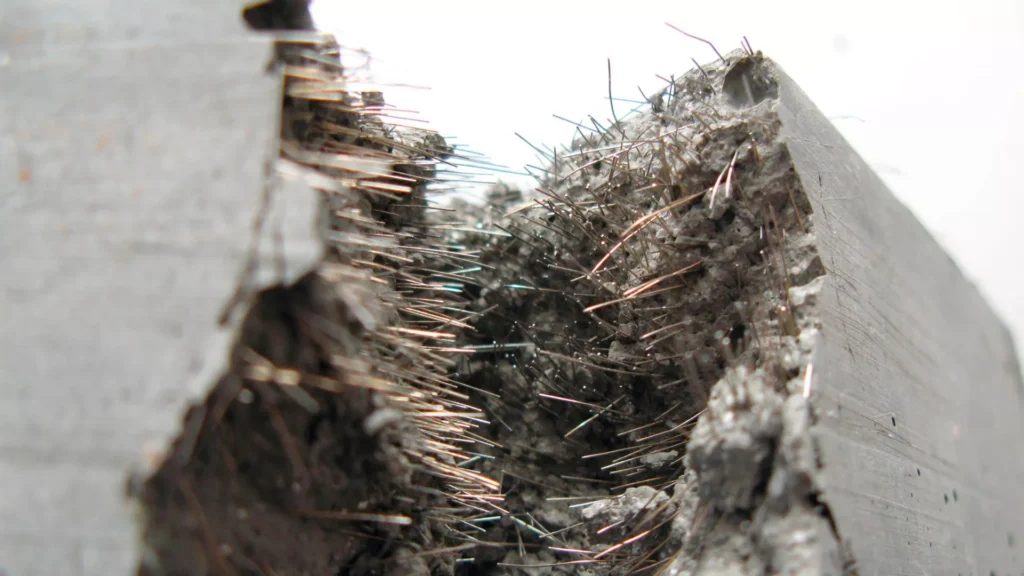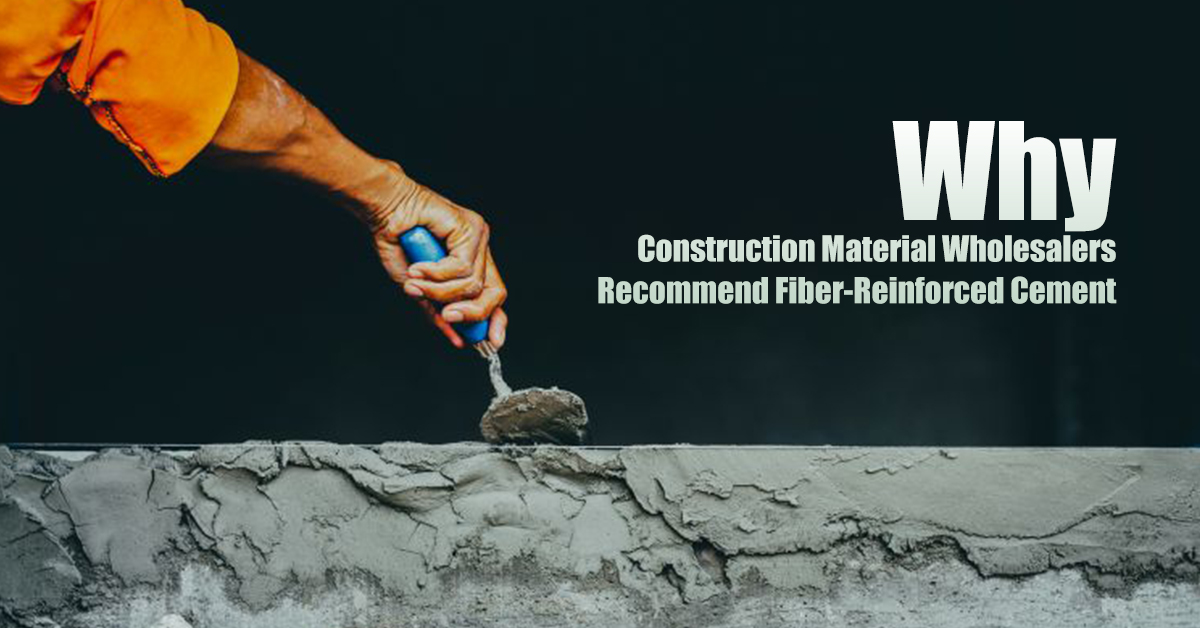Today’s construction sector is undergoing a major transformation, with a preference for high-performance materials. Builders and developers are seeking solutions that offer durability, flexibility, and long-term value. One such innovation is fibre-reinforced cement (FRC), a composite material that combines traditional cement with various types of fibres to improve its structural properties.
Fibre-reinforced cement is gaining popularity among contractors and construction material wholesalers due to its ability to resist cracking, improve load distribution, and extend the lifespan of structures. Whether used in residential buildings, commercial complexes, or infrastructure projects, FRC is a game-changer in modern construction.
What is fiber-reinforced cement?
Fiber-reinforced cement is a modified version of standard cement that includes small, uniformly distributed fibres. These fibres can be made from a variety of materials, including steel, glass, synthetic polymers, and natural sources like coconut or jute. The purpose of adding fibres is to improve the mechanical properties of the cement, especially its tensile strength and resistance to cracking.
The fibres act as support within the cement matrix, helping to distribute stress more evenly and prevent cracks. This makes FRC useful in applications where durability and structural integrity are crucial.

Types of fibres commonly used in FRC include:
- Steel fibres: Ideal for industrial flooring and heavy-load areas due to their high strength.
- Glass fibres: Lightweight and corrosion-resistant, suitable for decorative panels.
- Synthetic fibres: These include polypropylene, which is cost-effective and flexible.
- Natural fibres: Eco-friendly options like jute or coir are used in sustainable construction practices.
Construction material wholesalers are using these variations to meet the diverse needs of builders and contractors.
Key benefits of fiber-reinforced cement
Fibre-reinforced cement offers a wide range of benefits that make it suitable for modern construction projects.
1. Enhanced crack resistance
One of the most significant benefits of FRC is its ability to resist cracking. The fibres within the cement matrix help control shrinkage cracks that occur during curing. They also prevent micro-cracks from expanding, which improves the overall durability of the structure.
2. Increased structural durability
FRC is designed to withstand heavy loads and harsh environmental conditions. It performs well in high-traffic areas such as pavements, industrial floors, and parking lots. Its high durability reduces the chances of repeated repairs and maintenance, saving time and costs in the long run.
3. Better water resistance
Fiber-reinforced cement has lower permeability compared to traditional cement. This makes it more resistant to water infiltration, which is crucial for structures exposed to moisture, such as basements, water tanks, and buildings in coastal regions.
4. Better fire resistance
Certain fibres, especially mineral-based ones, can improve the fire resistance of cement. This helps maintain the structural integrity of buildings during fire incidents, providing an added layer of safety and security.
5. Versatility in applications
FRC can be used in a wide range of construction scenarios, including precast panels, roofing sheets, pavements, and load-bearing walls. Its adaptability makes it a valuable product for construction material wholesalers who cater to various segments of the industry.
Why construction material wholesalers promote FRC
With the increasing demand for advanced building materials, construction material wholesalers have a unique opportunity to lead the market by promoting fibre-reinforced cement. Here are a few reasons why wholesalers add FRC to their product lineup:
- High demand: Builders are actively seeking materials that offer long-term performance.
- Competitive advantage: Offering innovative products sets wholesalers apart from competitors.
- Customer satisfaction: FRC delivers reliable results, ensuring repeat business.
- Sustainability: Natural fibre options align with eco-friendly construction trends.
By educating customers about the benefits of FRC and providing technical support, wholesalers can build stronger relationships and increase sales.
Challenges and considerations
While fiber-reinforced cement offers many advantages, there are a few considerations to keep in mind:
- Cost: FRC may be slightly more expensive than traditional cement, but the added durability often justifies the increased cost.
- Mixing requirements: Proper blending is essential to ensure uniform fibre distribution and optimal performance.
- Storage conditions: Fibers must be stored in dry environments to maintain their quality and effectiveness.
Construction material wholesalers should inform buyers of these aspects to ensure proper usage and customer satisfaction.
Conclusion
Fiber-reinforced cement is transforming the way buildings are constructed. Its superior strength, crack resistance, and versatility make it an ideal choice for modern projects. For construction material wholesalers, offering FRC is not just about expanding inventory; it’s about meeting the evolving needs of the construction industry.
READ POST


